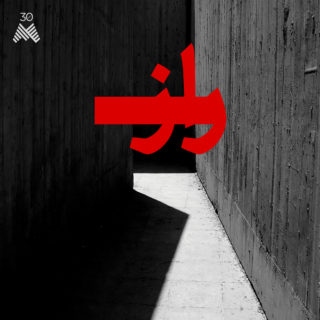Hooshyar Khayam & Bamdad Afshar
RAAZ
(30M)
8/10

(30M)
8/10
When Donald Trump withdrew from the Iran nuclear deal in May 2018, one suspects the impact on the ability of independent artists in the country to continue to work internationally was not near the top of his list of priorities (assuming that such a list existed). The ensuing economic sanctions on Iran made life harder still, as did Trump’s travel ban on Iran’s nationals. The situation for Iran’s music industry was dire, with concerts from visiting musicians quickly drying up and international connections for native musicians becoming far more difficult to establish.
One person who was keenly aware of this deterioration was Matthias Koch, a German music promoter who took it upon himself to set up a label specifically to support Iranian artists that have found themselves asphyxiated by the new wave of sanctions. The label – 30M Records – makes its debut this month with the release of a statement album, a collaboration between two oppositional artists that represent the folk traditions of the country’s provincial music on the one hand and the unrestricted possibility of the country’s musical future on the other.
Composer and pianist Hooshyar Khayam channels the history of Gwati, a form of music rooted in Baluchistan that is celebrated for its healing, cathartic qualities, while electronic musician Bamdad Afshar is known for his film and theatre compositions that stretch into unmapped areas beyond the ancient plateaus of the region and into the imaginations of its current generations. This first album, titled RAAZ, or ‘Secret’ in Farsi, plays the two sensibilities off against each other with ease, knowing that the best way to celebrate tradition is by proving that it can still be the source of new inspiration.
Khayam’s end of the deal is best exemplified on tracks like ‘Anthology’ and ‘Sha’sh’, in which the core principles are upheld as strings jump and sing, voices pull together in harmony and in the case of the former track, the pace skips almost to a dabke rhythm, as the Gwati healing becomes a therapeutic street party. Khayam’s casual, plaintive piano takes the starring role on ‘Say’, whereas more mournful strings adorn ‘Pa’nj’, before a sharp, squalling atonality befalls them.
Where Afshar comes into his own is during the electronically tampered tracks such as ‘Raaz’, where the Baluchi singers are paired with a writhing, prowling bed of treated atmospherics that catapult between moody and pounding, or ‘Do’, where the arrangement is more patient and contemplative. On ‘Yə´k’, prepared piano is joined by a strained string quartet as if the track is reaching inwards, pulling at a pain that is nerve deep. Voices and percussion arrive like a gathering crowd, not quite in celebration but definitely with a sense of community.
The fusion of the two artists is best captured by ‘Noh’, where a new female voice is pitch-shifted and shuffled between Afshar’s bleeps and blips. The track ventures out into the vast, open unknown, blinking somewhat, nervous but inquisitive. Electronic crackles codify into rhythmic, clickable beats and it feels like the birth of something, almost akin to Kubrick’s star child sequence from 2001: A Space Odyssey. It leaves the listener filled with the hope with which this record was recorded and released, that the future exists for artists such as these, and even better, we have no idea yet what it will sound like.